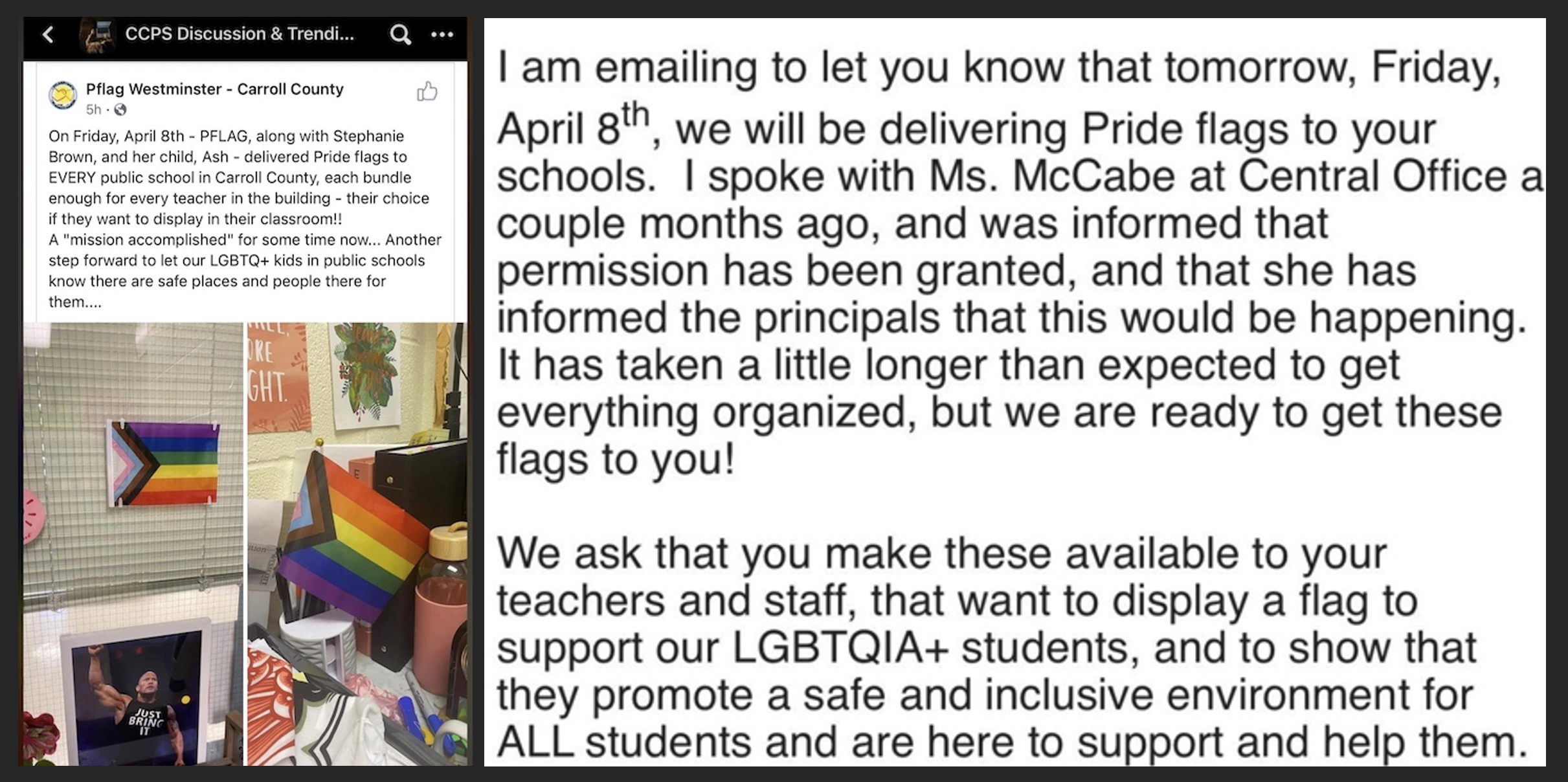This article brought to you by Informed Carroll County.
Will Governor Wes Moore’s campaign promise to protect local control of school systems prevail?
Just over a month ago, in a move to protect students from sexually explicit materials, Carroll County became the sole Maryland county, among several jurisdictions nationwide, to implement a policy change affecting over 60 book titles containing age-inappropriate content. While the local community widely supported the initiative, it triggered significant statewide and national backlash from prominent political organizations, including the American Library Association (ALA), Maryland Association of Librarians (MAL), and the Maryland State Education Association (MSEA). Critics labeled the policy as a “book ban,” arguing that it infringed on the rights of K-12 students.
Despite the outside pushback, Carroll County’s five-member board of education unanimously passed the policy, asserting local control over its education system. Even Carroll’s board member Dr. Patrcia Dorsey, often aligned with the aforementioned political organizations, supported the move, emphasizing that the policy was not a “book ban” but rather an exercise of Carroll’s right to implement community-aligned policies.
Local control over education has become a central point of contention, with urban counties surrounding Baltimore-Washington often imposing their views on more rural areas like Carroll. Despite being underfunded compared to wealthier blue counties, Carroll has managed to maintain its local control and emerge as a leading school system in the state.
However, the battle is far from over. Political organizations, having failed at the Carroll County level, are now attempting to revive the “book ban” argument in Annapolis. Bills 738 and 785, filed in the Senate and House respectively, constitute the “Freedom to Read Act.”
Critics argue that this legislation, as well as other bills brought forward as part of a “Top-Down Education Agenda”, accomplishes the opposite, eroding the rights of county school boards and media specialists while imposing the financial burden on the counties.
House Minority Leader Jason C. Buckel (R-Allegany) has signaled his discomfort with the legislation overpowering local media specialists’ decisions. He stated, “Public libraries are wonderful places. We need to have a wide variety of educational literature and materials in them,” but Buckel expressed concern about the state compelling local school systems to spend taxpayers’ dollars on materials they deemed inappropriate. He emphasized, “I think it’s a problem to use taxpayer dollars to provide materials that most of us wouldn’t read [and] almost all of us wouldn’t read to our kids.”
In a potential turning point, Maryland’s Governor Wes Moore may play a crucial role. During the 2022 gubernatorial campaign, Moore emphasized the importance of addressing educational issues at the local level and being a partner rather than a dictator.
“Many of the issues that we’re discussing are being addressed at the local level. It’s important for the state to understand we’re a partner in that. We don’t dictate to the local jurisdictions as to how their education processes work.”
Whether Moore will encourage his colleagues in Annapolis to reconsider this infringement on local media specialists remains to be seen.
A Top-Down Education Agenda
The “Freedom to Read Act” is just one of several bills being considered by Maryland legislators looking to erode the rights of local teachers and parents.
House Bill 558 – sponsored by Delegate Atterbeary, seeks to mandate statewide sex and gender identity education standards on local jurisdictions.
Senate Bill 386 – sponsored by Senator Lewis Young, will force all counties to give full adult voting rights on the board of education to minor, student representatives.
Senate Bill 189 – sponsored by Senator Ellis, would enforce “inclusive and diverse” language in state language arts standards.
Readers are encouraged to contact Governor Wes Moore and the bill sponsors to express their opinions on this legislation, urging a careful consideration of the balance between state oversight and local control.




